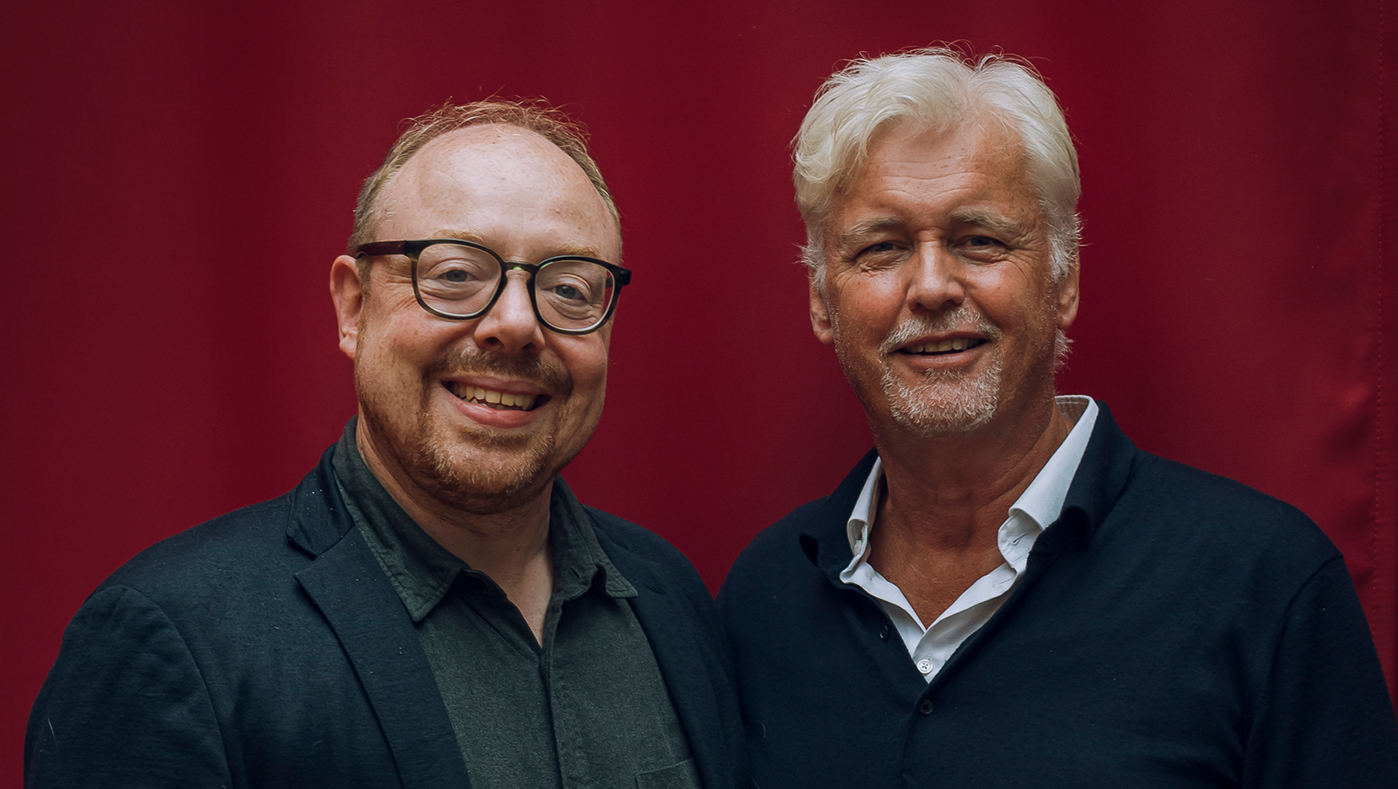Working together for classical music: GVL and OPUS Klassik
For eight years, the OPUS Klassik has been the most important award for classical music in Germany. How have you both experienced the development of the award during this time?
Clemens Trautmann: As a continuation of our initiative ‘from classical music for classical music’, which was born out of necessity in 2018 immediately after the end of the ECHO and was followed by a small revolution this year when we converted the OPUS Klassik's sponsoring organisation into a non-profit organisation. In doing so, we implemented what had been the OPUS Klassik's intention from the outset: a truly comprehensive and independent award for outstanding achievements in both sound recording and live performance and publishing, a close collaboration between smaller and larger cultural mediators and companies in our genre on the sponsoring side, and, last but not least, a focus on the broadest possible participation – whether educational for the next generation of classical music enthusiasts or through wide-reaching media formats. We are delighted and perhaps even a little proud that this organic development has been so successful so far.
Guido Evers: I can only confirm what you describe, Clemens: it has been wonderful to see how OPUS Klassik has developed into a beacon for classical music over the past eight years. The gala at the Konzerthaus and the entire OPUS weekend are now a social event that brings performers, labels and audiences together in a special way. Classical music is very close to the GVL's heart as part of German music culture – that's why we have been supporting the award since 2019 as part of our grants.
Since 2025, the Society for the Promotion of Classical Music gGmbH has been organising the OPUS. What specific changes will this bring about in terms of the award's orientation and appeal?
Clemens Trautmann: First of all, we are dealing with an idealistic story: we can now make the ethos that has already shaped the association clearly visible to the outside world. The seal of non-profit status is of great importance for the artists, but also for all the companies involved on the label and event organiser side. Last but not least, the seal is also of great importance for existing and potential new partners who provide financial support to OPUS Klassik. GVL is – and I say this without exaggeration – the most important and reliable partner of the award and also the only one that has been continuously involved since the beginning. Incidentally, not only through cultural policy grants, but also through content-related impulses. In this respect, the sustainability of the OPUS Klassik is also a success for the GVL for the entire industry and all its rights holders.
Guido, you are a member of the advisory board of this society. What role does this committee play in terms of content – and what input does the GVL contribute?
Guido Evers: As a member of the advisory board, I see my role as constructively supporting the work of Opus Klassik and contributing independent expertise on structural and funding policy issues. The committee is consulted on fundamental decisions to ensure transparency and quality of content. Through the GVL, important ideas on diversity, participation and the future viability of classical music can be contributed, which have a lasting impact on the award.
(Photo: Markus Nass / Society for the Promotion of Classical Music gGmbH)
Classical music stands for tradition, but the OPUS KLASSIK keeps setting new trends – for example with categories such as ‘Innovative Concert’ or ‘Classical Music Without Borders’. How do you manage to strike this balance between preservation and innovation?
Clemens Trautmann: We want to showcase classical music in all its diversity and richness. And yes, when you experience the award winners' gala live at the Konzerthaus or on ZDF television, you see the most socially established part of our art form. But we mustn't forget that classical music has an inherent revolutionary power; historically, it has always provided a space for protest against existing conditions or for creative transgressions. Conversely, classical music also creates an incredible intimacy and important spaces of retreat, especially in chamber music. To bring all these aspects to life, we have juxtaposed the gala with a second prize-winner concert featuring chamber music in unusual urban venues such as the Kühlraum or the Elisabethkirche.
Classical music is a central part of the German music market, but at the same time it has to compete with other genres. What social role does classical music fulfil today – and what contribution does OPUS make in this regard?
Guido Evers: Classical music creates cultural identity, conveys values and creates spaces for reflection beyond the everyday. It is particularly important for GVL, as many classical musicians and labels are among our rights holders. The OPUS Klassik awards highlight their achievements, strengthen their presence in the music market and are also a unique showcase for reaching younger generations.
Clemens Trautmann: Listening and the ability to engage in dialogue – especially the quiet tones and nuances – are particularly characteristic values of our genre, which cannot be cultivated enough in an increasingly polarised society. And since you mention the musicians themselves – it is always wonderful to see how much strength and motivation this trophy, or simply walking down the red carpet, gives the performers. Because OPUS Klassik publicly recognises extraordinary creative work, which is often associated with many sacrifices, in front of an audience of millions. Every year, the OPUS Klassik creates a sense of community, which is extremely valuable given all the economic and aesthetic upheavals in the industry.
Guido Evers: Absolutely! This sense of community – the experience of connection through music – is what makes the OPUS Klassik so unique. This is particularly important in today's world.
Thank you for talking to us, Mr Trautmann and Mr Evers.

